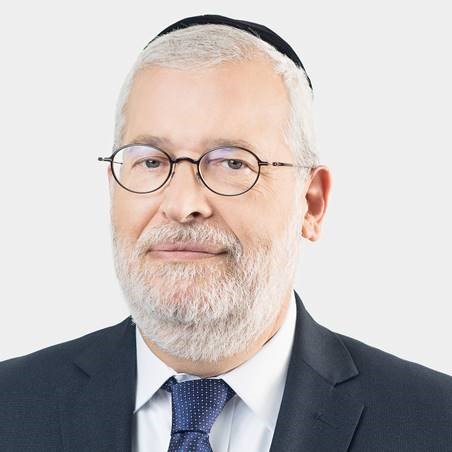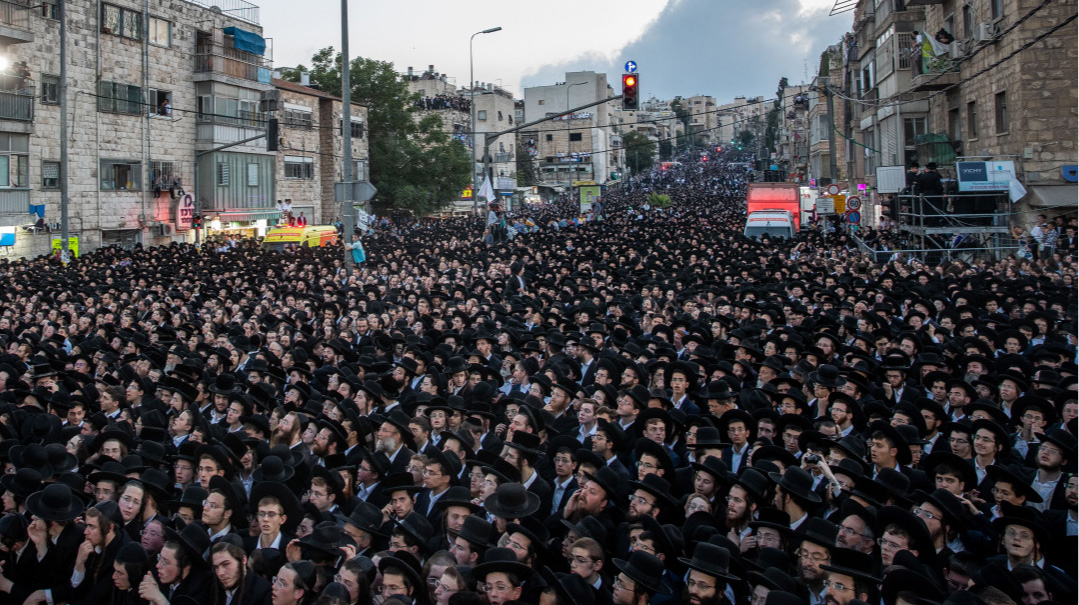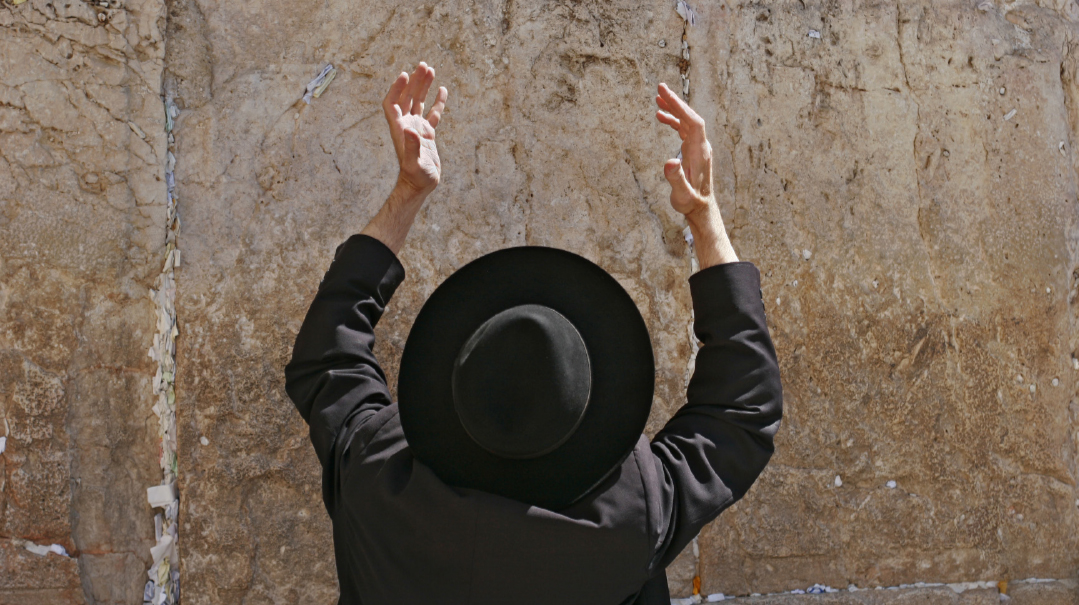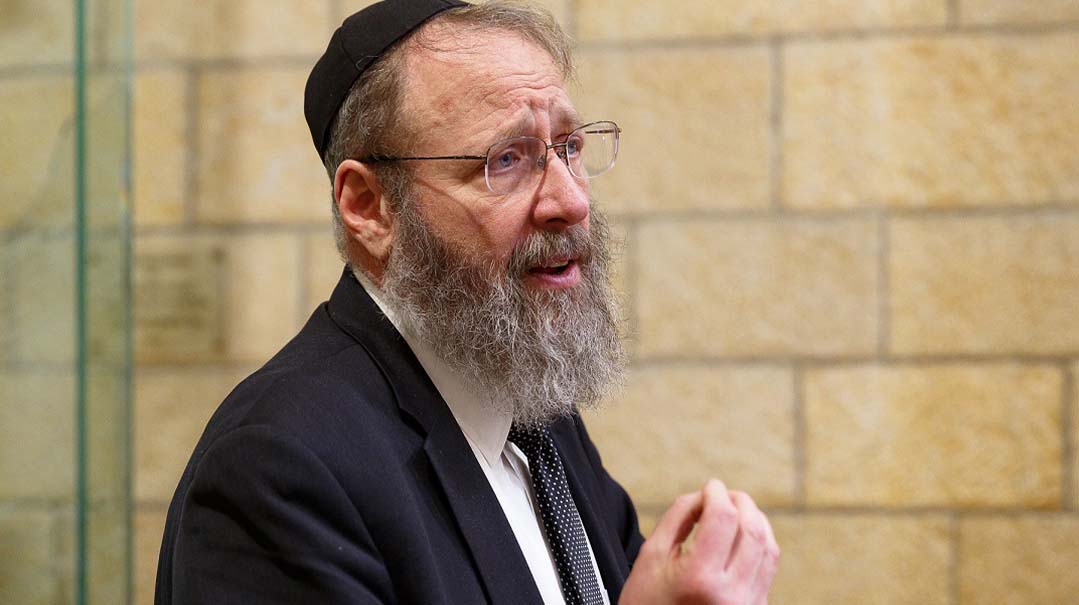Time for Dialogue

These clear demographic trends leave many secular Israelis with the feeling that their place in Israeli society is no longer secure
It’s no secret that the State of Israel is in crisis.
Israel is on the verge of a societal breakdown, and we should all be losing sleep over the possibility of bloodshed — especially as there is no small number of people thirsting for violence, going so far as to write or speak publicly along those lines.
Hundreds of thousands of Israel’s citizens are worried. Justice Minister Yariv Levin’s proposed judicial reform has sparked significant panic among a large and influential stratum of Israeli society. In his proposed curb of the judicial system’s independence, they see the collapse of the bastion that ostensibly protected secular, liberal Israel from — well, from a different Israel. Among other things, from us.
On the other hand, many on the other side — the right wing, religious, and chareidi populations — have long felt that the establishment has not been there for them. It did not protect the national-religious community during the Gush Katif disengagement nearly two decades ago. It eroded the status of Shabbos, conversion standards, the Kosel, Pesach, and the rabbinical courts. It prevents chareidim from pursuing academic studies in gender-separate settings. For years, it has not allowed the Knesset to enact a law anchoring yeshivah students’ exemption from military service. It has displayed very little attentiveness to the stance of the country’s right flank and the settlers. It was time, these people felt, for real change.
Unfortunately, the public debate has risen to tones that preclude even the minimum of dialogue. Had this frenzy resulted from the issues alone, a compromise could have likely been reached with relative ease on 90 percent of the relevant issues. But this frenzy, while directed at the reform, does not actually stem from judicial concerns.
The demonstrators in Tel Aviv and Jerusalem may shout “democracy,” but the true cry emerging from their throats is actually “demography.” They are watching the demographic trends in the State of Israel with fear. They see the chareidi sector growing steadily, and the “chardali” (chareidi dati-leumi) gaining numbers and strength as well. In 1980, chareidim were just four percent of the population in Israel; today that number is more than 13 percent, and it continues to rise.
Take a look at the population figures for ages 0-9, and you’ll find that chareidim today comprise about a quarter (24 percent) of all children in Israel. Based on figures from the National Bureau of Statistics, chareidi society doubles itself every 16 years.
These clear demographic trends leave many secular Israelis with the feeling that their place in Israeli society is no longer secure. They wonder whether they have a future in the State of Israel — be it on the economic, security, or liberal fronts. That deep concern is the reason that some of them are taking on this battle, ostensibly about judicial reform, as if it is a fight for their lives.
Every fire needs fuel, and this one is no exception. The fears of the secular public have been fed by years of obsessive incitement and libel by any number of radical elements, including opposition leader Yair Lapid and Yisrael Beiteinu chairman Avigdor Lieberman. They and their allies have gained huge political capital by presenting the chareidim as agents of chaos in Israel society, as a cadre of primitive and backward parasites who pose a deep threat to the secular public.
The Reform movement, which has never garnered much traction in Israel, has also gone all in on the anti-chareidi war. Many of the appeals to Israel’s courts on issues relating to chareidi society were initiated or included active participation by Reform elements operating in Israel. Today, whenever a Knesset committee discusses subjects related even indirectly to the chareidi sector, you can be sure to find Reform representatives in attendance — even if it’s a discussion about the cost of public transportation.
The steady flow of incitement is the reason why secular Israel’s hostility toward the chareidi sector has grown, even as the country has become more Westernized and more liberal. These sentiments were widely manifested during the Covid crisis, when secular writers and influencers publicly fingered chareidim as “disease vectors.” Now — with the establishment of the most right-wing and religious government in Israel’s history — many in the secular population feel they have woken up to a nightmare come true.
The rift is real. More and more Israelis are talking about leaving the country because they fear that their children don’t have a future in Israel. If that talk translates into action, the result will be a tragedy for the Jewish people. Not just because a large-scale yeridah will affect the economic and military strength of Israel, but because Israelis who move abroad tend to assimilate at the highest levels in the Jewish world. Chances are all too high that the children or grandchildren of most of these people will not be born as Jews, and if they are, their Judaism will not mean anything to them.
As believing Jews who bear a deep and abiding concern for the future of the Jewish people, this is a crisis we dare not ignore.
Even among those Israelis who are committed to staying, there is the disturbing sense that an existential war has been imposed on them. Their reaction may well be very radical. We must not make light of the possibility that this conflict will escalate into a bloody clash. It’s only a step away, and as those responsible for the shleimus, the wholeness, of the Jewish people, we dare not ignore it.
This is the massive crisis that Israeli society is facing. Chareidi society, which is at the heart of this issue, also has a central role to play in healing the rifts.
Nearly a decade ago, I established The Haredi Institute for Public Affairs, a high-level think tank that operates in consultation with rabbanim and communal leaders from within the chareidi community, and provides know-how, data, and solutions to address the major questions that chareidim face in the State of Israel.
Some of our achievements include the passage of a law that allows for the continued operation of Israel’s gemachim, a rabbinically approved high-tech program for seminary students which was built with the input of the high-tech and security industries, the government’s adoption of our housing plan to accommodate chareidi needs, and the development of superior high-tech training programs for chareidi men who wish to join the workforce (partially funded by philanthropic funds and the Kemach Foundation).
Over the course of my work at the Institute, I have interacted with many varied figures in the world of government and public policy, and I’ve encountered a fundamental dearth of information and understanding when it comes to the chareidi sector, its needs, and its unique characteristics. But I encountered something else, too: worry, even fear.
Israel’s secular Jews have real concerns about the steady growth of the chareidi sector. They worry: What will Israel’s army look like in two or three decades? What will the economy look like? What will happen to the country’s scientific and technological advances, to its judicial system, and to Israeli society?
I discovered that if you display willingness to seriously listen the other side’s concerns, you can find a shared language and bridge the gaps much more easily than is widely thought. In order to achieve that kind of dialogue, we don’t have to sacrifice one iota of our values; we just have to display a willingness to listen to the concerns of those at the other side of the table. Using that approach, the Institute has succeeded in working with government offices, philanthropic foundations, senior figures in the financial world, and change-makers in the public sector — to better our shared future.
For our community to continue thriving, we must give serious thought to our role in this story. As faithful Jews, it behooves us to demonstrate concern for the future of the Jewish people. We are obligated to sanctify and endear Sheim Shamayim in the world. It is incumbent on us to try and start this dialogue. We need to lower the flames, and start the conversation — by making it clear that we’re ready to listen.
(Originally featured in Mishpacha, Issue 952)
Oops! We could not locate your form.





